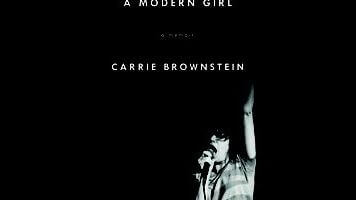Carrie Brownstein finally lets down her guard in an engrossing memoir

Even as Carrie Brownstein spent the decade after Sleater-Kinney’s hiatus becoming a celebrity in her own right, she remained guarded—forthcoming about her work, but much less familiar when it came to her life. In her new memoir, Hunger Makes Me A Modern Girl, she writes, “For a long while I could share nothing more than the music itself. I think I was too scared to be open with fans because I knew how bottomless their need could be.” More directly, she had no answers to offer. “How could I help them if I was just like them?” she writes.
Brownstein’s story doesn’t sound unique at first, but by chapter four, tellingly titled “No Normal,” it grows less typical. She grew up in the Seattle suburb of Redmond, the first-born of Kenny and Linda Brownstein. Her parents split when she was 14, the inevitable result of a fundamental dysfunction that she describes with little drama. That same year, Brownstein’s mother—whom she describes as distant and troubled—would be hospitalized for anorexia. Her father came out as gay in her 20s.
Brownstein reveals this over the course of five chapters, the first of the book’s three sections: “Youth,” “Sleater-Kinney,” and “Aftermath.” As much as she discloses, Brownstein withholds a fair amount. For instance, she mentions her father was a corporate lawyer, but neglects to say what her mother did. While she mentions having a younger sister, Stacey, she never says how much younger. “Disappearance,” the chapter about her mother’s illness and her family’s problems, ends with her mother returning home from hospitalization. By the next chapter, “No Normal,” her mom has moved out, which Brownstein mentions only in passing as she discusses her father’s sexuality. She doesn’t fill in the gaps, maybe because she doesn’t want to share, or maybe because she understands readers are more interested in Sleater-Kinney.
Wisely, Brownstein devotes most of Hunger Makes Me A Modern Girl to her time in the band. The title comes from a line in the band’s song “Modern Girl,” and she dedicates the book to bandmates Corin Tucker and Janet Weiss. The Sleater-Kinney section doesn’t read like Brownstein’s holding out; she goes into detail about meeting Tucker and the band’s earliest days, devotes a chapter to each of the band’s pre-hiatus albums, another to meeting Weiss, and another about the prominent role she played in the band going on hiatus after 2005’s The Woods.

 Keep scrolling for more great stories from The A.V. Club.
Keep scrolling for more great stories from The A.V. Club.